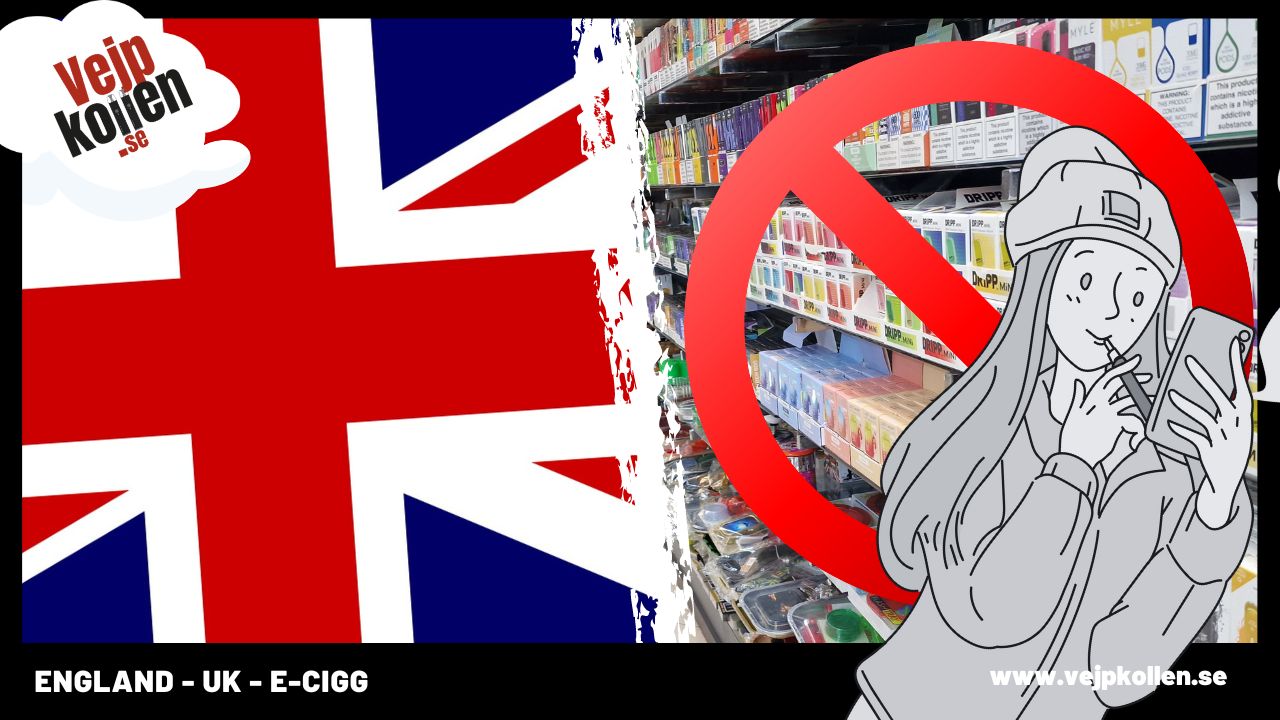In country after country that has introduced laws against vejp products, an exploding black market is emerging in the wake of the bans. Now a UK study shows that the decision to ban disposable vejp there could drive as many as a third of users to shop illegally instead. And as black market products are not checked for harmful substances and nicotine levels, the ban could be downright dangerous, say the researchers.
The decision to ban single-use vejps in the UK will be enforced on 1 July 2025. But the debate and criticism of the ban is ongoing. Now a study by one of the major retailers shows that millions will turn to the black market when the ban comes.
The survey was conducted by the University of Derby on behalf of the Swedish retailer "Haypp Group" which sell both vejp products and nicotine pouches in the UK. The study includes users over the age of 18 who have simply been asked how they will act when the UK ban on disposable vejp is introduced on 1 June this year.
Open to the black market
The results show that one third would consider continuing to buy disposable vejp, but on the black market instead. Men aged 35-54 in particular are likely to continue using the then-banned products - despite the risks of vejp taking uncontrolled products
Researchers at the university also note that many currently illegal vejps contain higher than normal levels of heavy metals such as copper, nickel and lead - substances that in large doses can cause serious damage to health.
"The ban on single-use weapons will create a black market. There are no guarantees that any vejp circulating after 1 June is safe." says Markus Lindblad, head of communications at Haypp in a statement to the Daily Mail, who reported on the study.
Children and young people particularly vulnerable
Statistics from NHS England show that one in four UK minors have tried vejpa, and one in ten use e-cigarettes regularly. Among 16-17 year olds, the figure rises to one in six. Single-use variants are by far the most common, with 70% of underage vejp users.
Unclear for podcasting system
With over 5.6 million 1TP8 users in the UK, the question now is how many will actually comply with the law after 1 June - and what the health implications might be if illegal, unregulated products take over the market, or if users might turn to the podcasting systems and other products that remain legal.
Distress: Studies commissioned by companies with an interest in the market should be analysed with this in mind. But this does not automatically mean that the results are wrong or misleading. In this case, it is up to the university in question to argue and test the results in the usual way.




